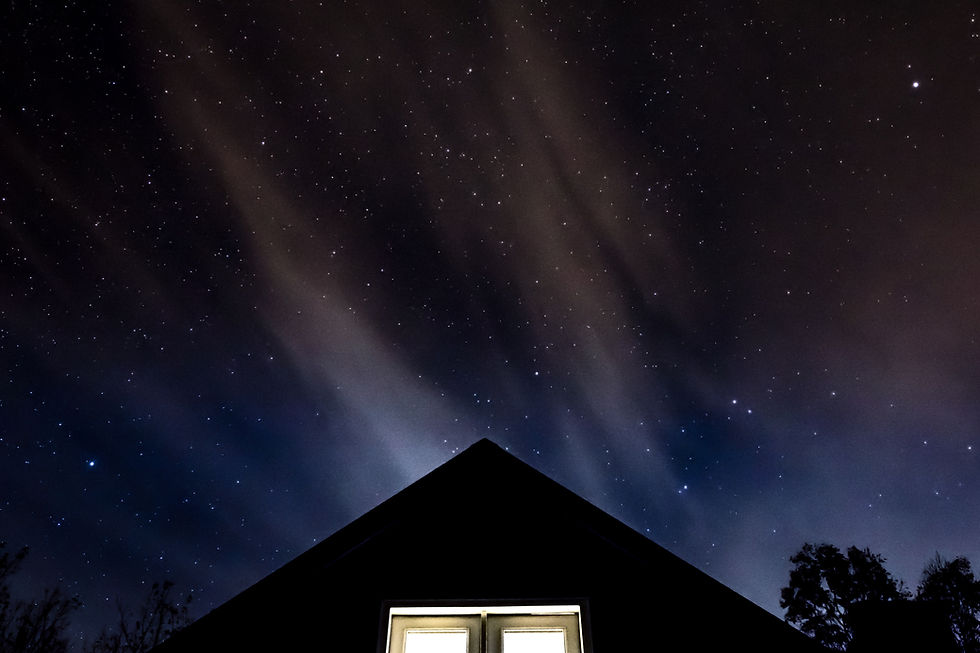Why I'm a United Methodist.
- meashley1124
- Jul 17, 2024
- 4 min read
Listen. I get it.
If you're in the Methodist world, you're sick of hearing and having conversations like this.
If you're not in the Methodist world, you're sick of the vague awareness you have about SOMETHING rending the Methodists in two, because even though you may not know the details, you at least have heard that the Methodists have had a rough few years.
I get it.

But what if the chaos the church has lived through was reframed as an opportunity?
What if we were using this time of awkwardness and healing to have honest conversations about our hearts, our hopes, our fears, and our convictions? (Hard conversations can be had without blaming and shaming, btw.)
I want to have an honest conversation about why I'm a United Methodist because I think there's a lot of misinformation circulating about what we believe, but also because the United Methodist church saved me from my years of desert-wandering.
See, I wasn't raised in this denomination.
I come from a very Southern Baptist-oriented culture and background. The Baptists taught me how to share my faith, how to have those mountaintop highs where heaven meets earth and the veil is just a little bit thinner. They taught me the beauty in a good baptism, the kinds that happen in muddy rivers with mud squelching underfoot and minnows tickling your ankles. They taught me how to wear out your Bibles with notes and highlighting and spine-cracking perusing. But what the Baptists didn't teach me was that I could be a leader, specifically in the church.
I felt God calling me to ministerial leadership, but my Baptist mentors and friends emphasized that I should submit, let the men do the work. I could teach children or do women's ministry, but those avenues always felt more like brick walls rather than the green pastures Jesus promised me.
It all came to a head during my senior year of college (at a Southern Baptist institution, naturally). An incident left me reeling and questioning my theology, and I found myself, suddenly, completely unmoored in a spiritual desert. What I'd been taught to believe no longer felt true. How I'd been treated didn't resonate with how Jesus said I should be treated. I walked away from the only faith I'd ever known and began the messy, hard work of finding God anew.
My journeying brought me to the UMC, and, quite simply, I fell in love.
I was given permission and the empowerment to lead as I felt called. I learned the beautiful dance of liturgy. I read John Wesley's sermons and Charles Wesley's hymns, and I felt truly at home for the first time in literal years. Here, finally!, was a church that let all people have, not just a seat at the table, but a voice at it, too.
Here, finally!, was a church that celebrated practical acts of justice. Here, finally!, was a church that celebrated the lavishness of grace in all its forms.
Here, finally!, was a church that was known for Who they loved, not for who they kept out.
Hear me: No denomination is perfect.
People aren't perfect. We're messy and broken, and sometimes this means that our churches can be messy and broken, too.
But the beauty of the UMC is that we can be broken and messy together, without shame.
I guess I could summarize the entirety of United Methodist theology with this one sentence from John Wesley:
"Do all the good you can, by all the means you can, in all the ways you can, in all the places you can, at all the times you can, to all the people you can, as long as ever you can."
I enjoy being a part of a people who seek to do good in the name of love.

I also greatly enjoy the Methodist teachings on grace.
We see grace in three different ways:
Prevenient
Justifying
Sanctifying




Yorumlar